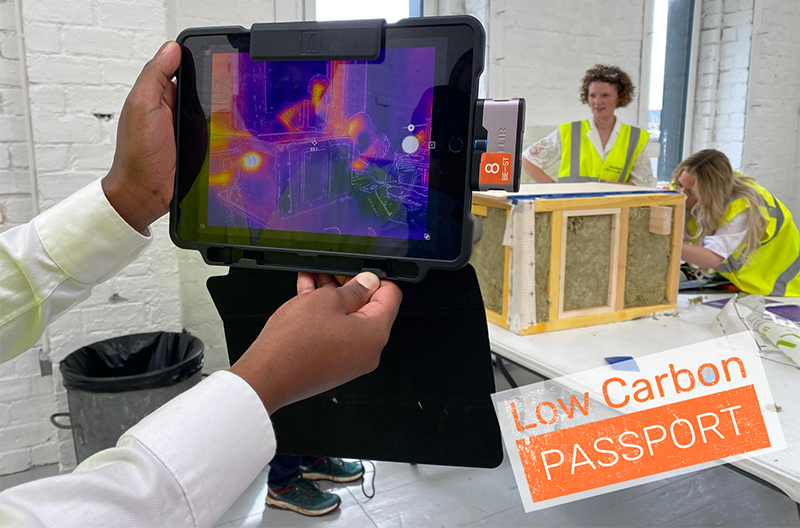
BUILT Environment – Smarter Transformation (BE-ST) is launching a new course designed to train for the current and future skills and competencies needed to deliver high-quality, low carbon, efficient buildings.
The Low Carbon Passport course is funded through the CITB Industry Impact Fund and led by Tier 1 contractors including Balfour Beatty, Morrison Construction, Robertson Construction, Kier Construction, and Morgan Sindall.
The programme will train 1,200 construction workers by December 2026 and has been developed in partnership with Scottish colleges.
The course is fully funded, meaning it is free to take part in and combines online modules and hands-on training. It is open to people working across the supply chain – from those new to the sector to experienced professionals looking to upskill. Participants will receive a certificate on completion with the long-term aim for the course to be CPD certified by 2026.
The first online course is now available. Sign up for and take part in Low Carbon Passport 1a: Introduction to Low Energy Buildings here: https://bestlearninghub.talentlms.com/plus/catalog/courses/220
The first two in-person sessions will be taking place on Tuesday 7th and Tuesday 28th October at City of Glasgow College. Sign up for free here: https://www.be-st.build/low-carbon-passport
The course is designed to improve understanding of energy efficiency and construction quality. So far, the available learning modules include:
- Low Energy Building Technology: Fabric – online and in-person training, covering low energy buildings principles including insulation, airtightness, thermal bridges, moisture control and construction quality.
- Low Energy Building Technology: Building Services – online and in-person training, exploring how building systems contribute to low energy performance, including the factors involved in ensuring systems are installed and operating correctly.
Training will be delivered by BE-ST and hosted at affiliated colleges across Scotland, including City of Glasgow College and UHI Inverness. Bespoke training packages for contractors and organisations can also be developed and delivered.
Caitriona Jordan, associate director of retrofit and energy efficiency at BE-ST, said, “The Low Carbon Passport is a much-needed intervention for our industry. If we’re serious about reaching net zero and improving building performance through quality assurance, we need to equip the workforce with the right knowledge and tools. This programme gives people across the sector the confidence and competence to deliver buildings that are fit for the future.”
Ian Hogg, technical director at Balfour Beatty, added, “The Low Carbon Passport initiative brings together a unique collaboration that includes BE-ST and a number of main contractor and education partners, all focused on the development and delivery of a programme of accredited low carbon skills training for the construction industry. The programme directly addresses the need to equip Scotland with the skills necessary to decarbonise and achieve our net zero targets and has been made possible by the CITB Industry Impact Fund award.”
Olivia Mathewson, funding officer at CITB, commented, “Scotland’s construction sector needs a workforce that is ready to deliver the low carbon, high-quality homes and buildings that our communities depend on. The Low Carbon Passport is a fantastic example of how the Industry Impact Fund helps industry and education partners come together to address critical skills gaps.”








